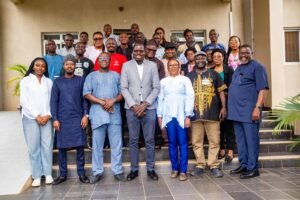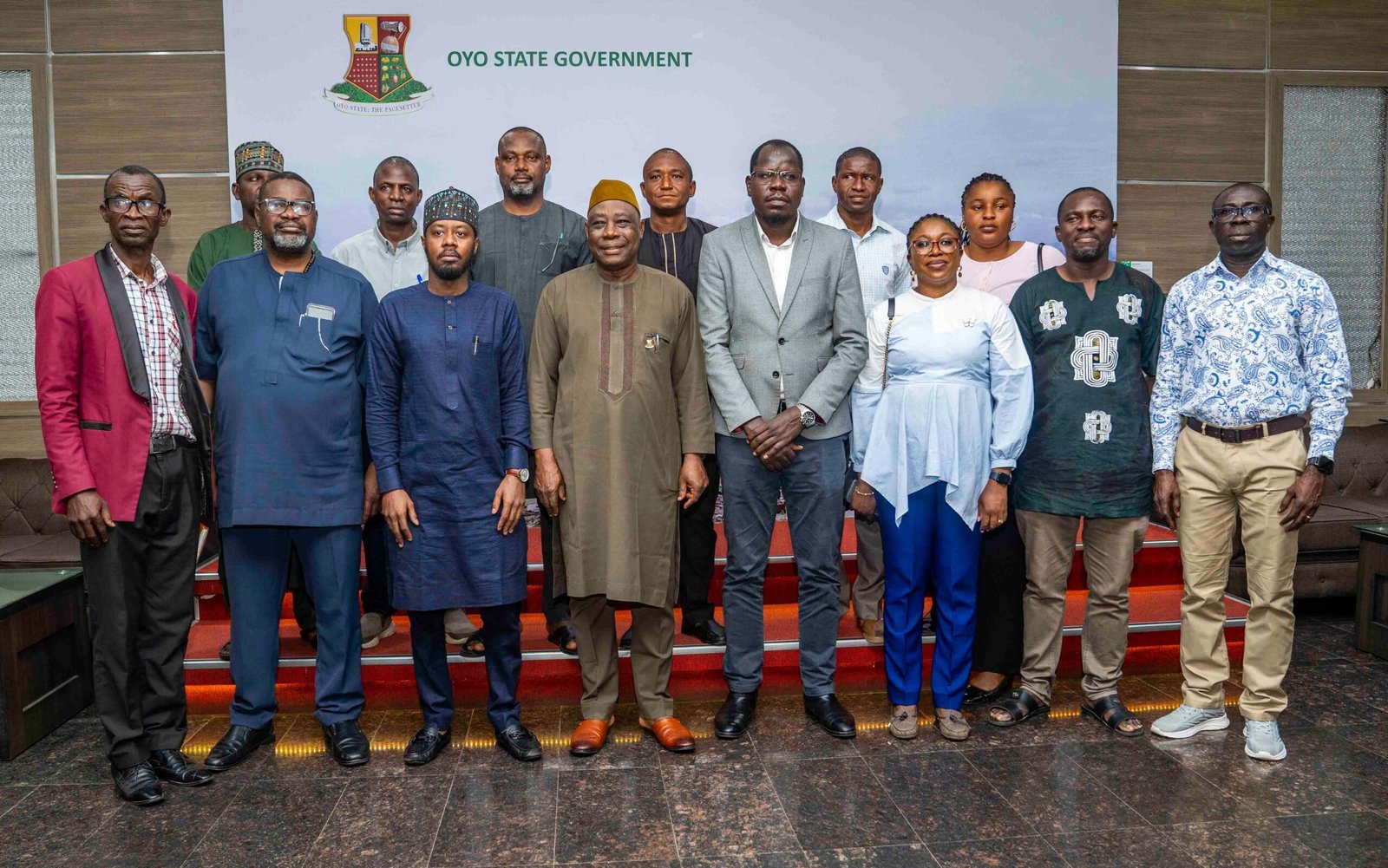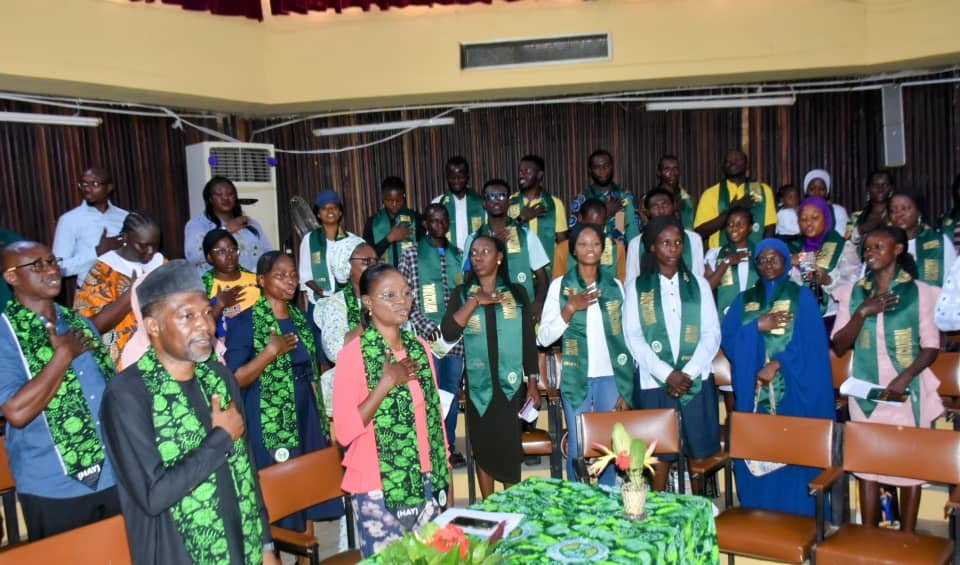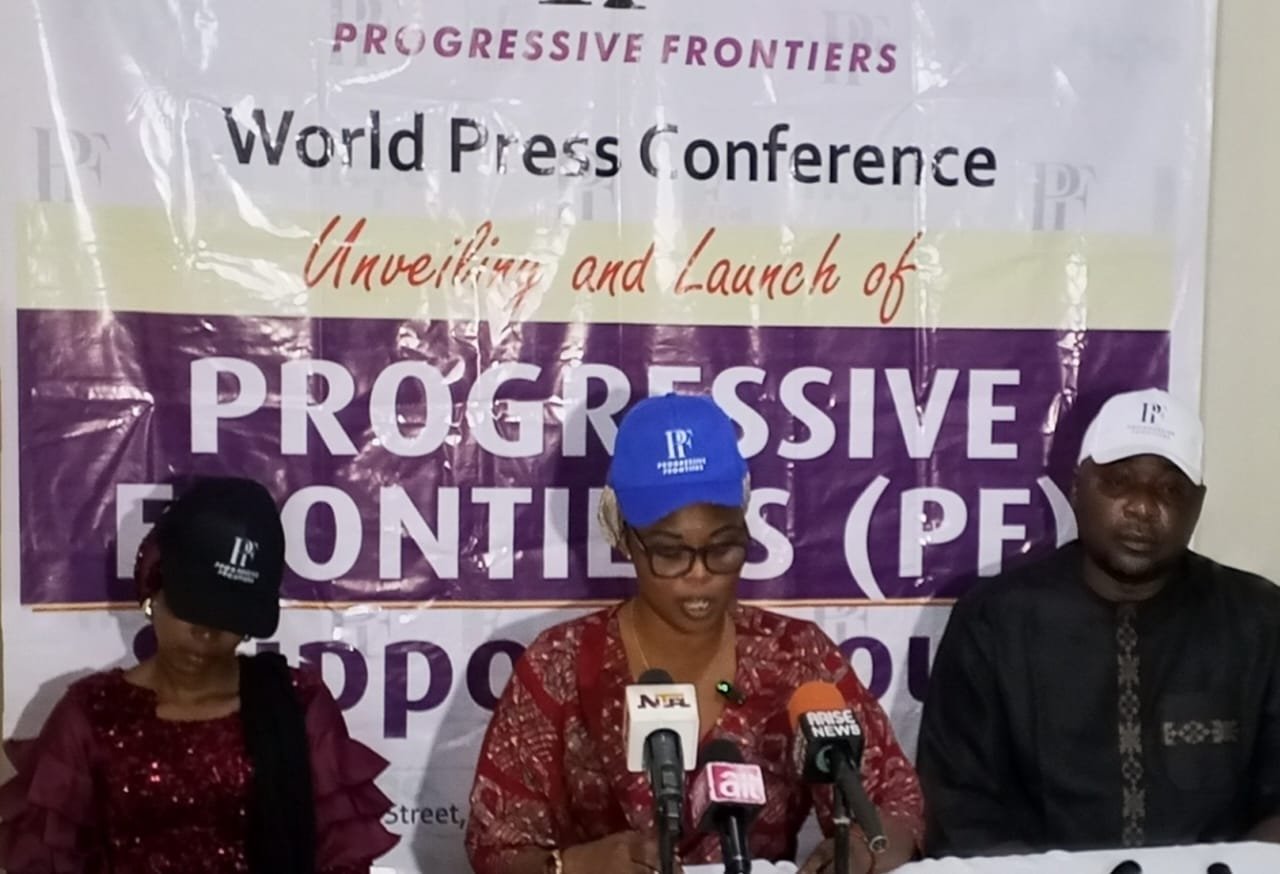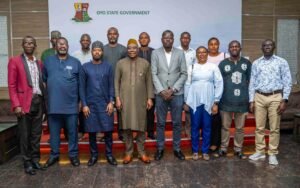
Makinde Charts New Course for Agriculture, From Traditional to Industrialized Model
By Adewale Owoade
Oyo State Governor, Seyi Makinde, has stated that the state is shifting from rudimentary agricultural practices to an industrialized model, just as he also noted that the state government has placed agribusiness at the forefront of its developmental agenda.
Makinde said this while hosting members of the delegations of Special Agro-industrial Processing Zones (SAPZ), who paid him a courtesy visit after days of assessment tour to the proposed site of Ijaye Agro Industrial Hub, Atan Village Akinyele local government Ibadan and other agribusiness industrial Hubs in the state.
The SAPZ team include representatives from the Federal Ministry of Finance, Federal Ministry of Agriculture and African Development Bank (AFDB).
In his address, Gov Makinde, represented by his deputy, Barrister Bayo Lawal, emphasised the importance of agriculture in the state’s development agenda, noting that Oyo State cannot be depending on other states or countries for food.
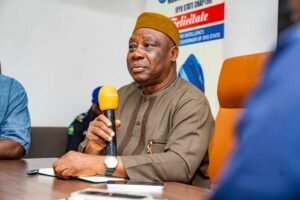
He said, “In Oyo State, we have placed agriculture at the forefront of our development agenda. We must be able to feed ourselves. We cannot continue to depend on other states or countries for food, without food security, survival is threatened. That’s why agriculture has been made a top priority by this administration.
“When a visionary like Dr. Debo Akande was brought in from IITA, he was tasked with leading OYSADA, and I must say, he has been doing exceptionally well. Take the Fashola farm settlement as an example. It was once a moribund agricultural site, established in the 1960s but abandoned for several decades.
“However, when this administration came on board, the governor gave him a marching order to revive and transform it. Today, thanks to those efforts, everyone can see the progress being made at Fashola.
“The Ijaye Agro-Industrial Hub is another significant project currently underway. We are working in collaboration with the World Bank and the African Development Bank (AfDB), and I can assure you that everything is on track. Ijaye is particularly dear to us.
“While Fashola is already taking shape, Ijaye is being designed on an entirely different level. The Eruwa project is also ongoing. To the best of my knowledge, that settlement was created during the First Republic but had also been neglected, just like Fashola. We are now focused on transforming it as well.

“The plan is for these projects to be zoned: Fashola will serve the Oyo zone, Ijaye will cater to the Ibadan zone, and Eruwa will take care of the Ibarapa zone. With your support, we believe all these initiatives will become holistically productive.
“Oyo State is about 80 percent agrarian. Our goal is to convert the remaining 20 percent into commercial potential, but agriculture remains the foundational occupation of our people. With support from institutions like AfDB, we’re moving from rudimentary agricultural practices to a more industrialized model.
“Yes, there are challenges, as with any major project, but they are surmountable. In fact, the very existence of these projects is a response to those challenges.
“We are fully committed to collaborating with the African Development Bank. Whatever is required from us, let us know, and we will work tirelessly to ensure we meet expectations.”
Earlier in his address, the Principal Agro-Industry Officer AFDB, Bernard Onzima said, “African Development Bank for quite a while now has been spearheading the agro industrial Processing Zones program across Africa.
It’s an initiative aimed at enhancing value addition by focusing on downstream processing. For a while now, I think we’ve been singing a song for post-harvest losses and Africa not adding enough value in strong material, including agricultural products.

“So, the bank, under the leadership of President and the Senate, has been spearheading this initiative. So, our mission here was basically to check on progress, to discuss with the state executing agency and the program implementation image on the progress made and their plans for the next half of the year.
“We are aware that there were some challenges at the onset of the program, not particularly the whole state but with the overall implementation across the seven states.
“There has been an uptick in speed. Recent progress suggests that we should be able to start ground activities, especially the construction of those activities very soon. So, after the province,
“I will also note that Oyo, as a state, is already far advanced in many respects compared to the other states, enhancing agriculture development in Africa, but also ensuring that Africa has food sovereignty, because for now, Africa has the most unutilized arable land across the world.
“So, there is therefore the need for certain efforts. And that’s why we think this problem is so critical.” Bernard said.
Also in his address, the National Program Coordinator for the Nigeria Special Agro-Industrial Processing Zones (SAPZ) program, Dr. Kabir Yusuf said, “This is a combination of the Federal Ministry of Finance, Federal Ministry of Agriculture and African Development Bank.
Yusuf further said,
“This is a joint mission, and we’ve come and see how Oyo has gone, how have they’ve utilized thus far and I can tell you what we have seen is marvelous.
“But importantly, as as my colleague said, Oyo went ahead to an advanced stage, because we have seen Fasola, it’s exactly what want to see in modern SAPZ.
“Fasola was built, or was even conceptualized before the coming of SAPZ and for us to see that, it’s showed that there’s already something like what we are planning, so it gives us a lot of comfort that these funds would not just be judiciously utilized, but they would also be additional support from government, which we have seen, the government need further support in doing the roads.
“We’ve visited the Ijaye and Fasola hub, and we saw all the greenhouses that are there. We also saw the dairy, we also visited somewhere about 10 companies that have already taken there, so I think this is really commendable.
“SAPZ is a government enabled private sector led agro industrialization model that establishes modern agro production and processing zones. And these zones are designed in a conducive environment to ensure that agribusiness efficiently through leveraging on shared, common infrastructure, which we have seen in Fasola and I’m sure your Excellency will welcome the SAPZ.
“We’ve had a session with the DG. We’ve had a session with the established team, and as well as we’ve gone around. So, I think what we have seen is really good Your Excellency.
“But just to emphasise something I’ve also discussed with the DG OYSADA and that colleagues here should understand there’s a difference between projects and government work, in government, it’s very good prudence is allowed, and we should also save money, but the project is slightly different.
“Compliance is very important in project, but utilisation of those funds is extremely important because these funds are loan, and the state must pay back those fees, and failure to expend these loans over a period of these five years, this means extension.
“So, your excellency, as you also know Oyo is the first phase. We have currently eight states of Oyo, Ogun, Cross River, IMO, FCT, Kaduna, Kano and kwara and we are currently on boarding team maintenance. By September, I believe it should go to the board of the African Development Bank and then the Nigerian protocol, which is to check approval.”
Other members of the supervision team are, Samuel Sakwa (AfDB), Bashir Gaya (AfDB),Emmanuel Chisesa (AfDB), Oye Bankole (AfDB), Oyebola Akande FMF), Kabir Yusuf (NPC, SAPZ), Temitope Olayiwol, Okorie Agwu, Louis Enaberue, Abel Ameh,Bello Sani, Babangida Shehu, Jamila Hassan, Chukwudi Nwovu,.Ali Sunday Ojochonu, Sabo Kawu among others.
While the Director General of Oyo State Agribusiness Development Agency (OYSADA) Dr. Debo Akande who also doubles as the state Coordinating Chairman of SAPZ led the delegations to the Governor’s Office, in company of the state Acting State Coordinator for SAPZ, Dr Ajetunmobi Akinwumi, Communication Officer of Oyo SAPZ, Ann Odaudu, alongside other officials of the agency.
